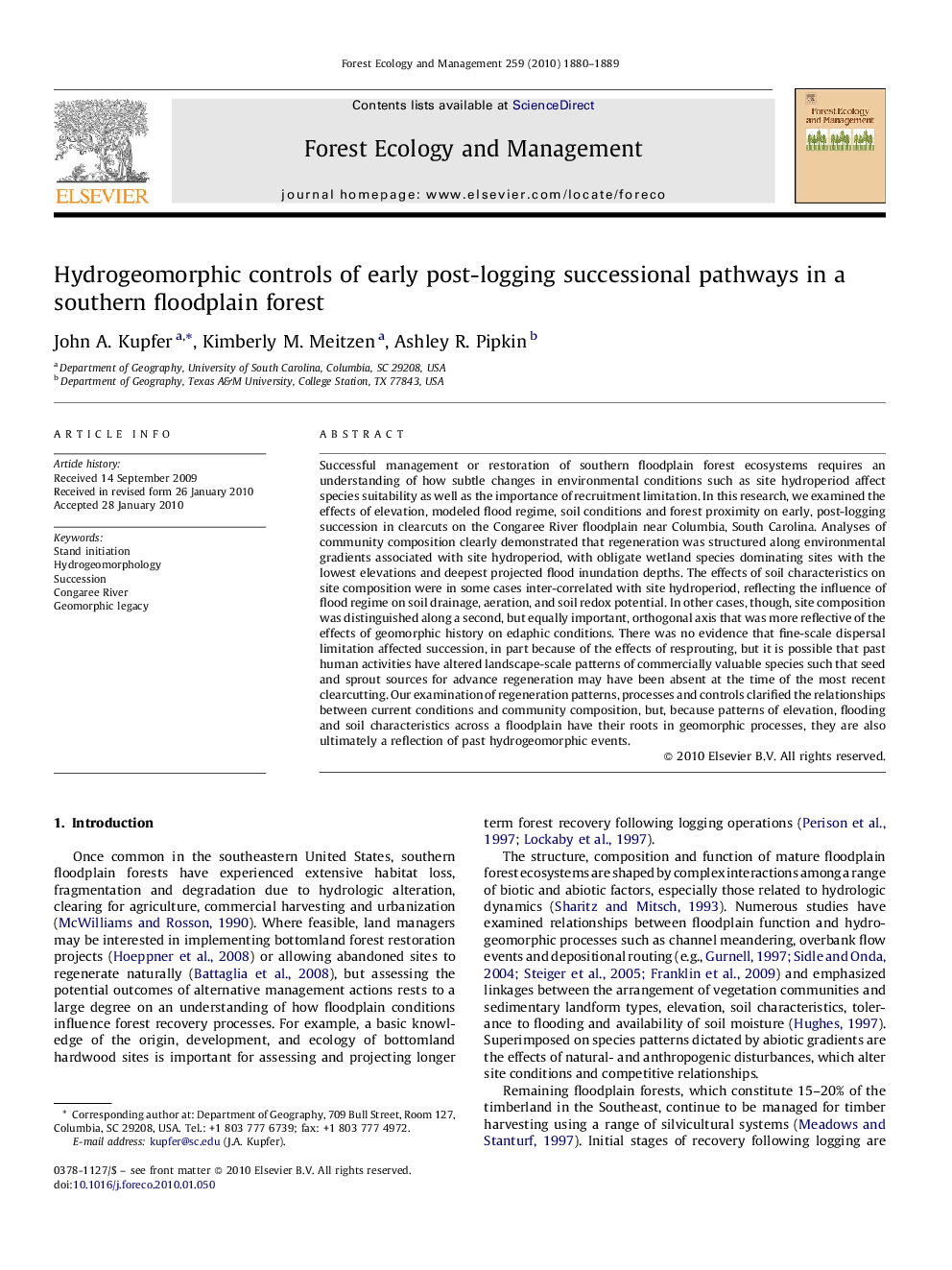| Article ID | Journal | Published Year | Pages | File Type |
|---|---|---|---|---|
| 88258 | Forest Ecology and Management | 2010 | 10 Pages |
Successful management or restoration of southern floodplain forest ecosystems requires an understanding of how subtle changes in environmental conditions such as site hydroperiod affect species suitability as well as the importance of recruitment limitation. In this research, we examined the effects of elevation, modeled flood regime, soil conditions and forest proximity on early, post-logging succession in clearcuts on the Congaree River floodplain near Columbia, South Carolina. Analyses of community composition clearly demonstrated that regeneration was structured along environmental gradients associated with site hydroperiod, with obligate wetland species dominating sites with the lowest elevations and deepest projected flood inundation depths. The effects of soil characteristics on site composition were in some cases inter-correlated with site hydroperiod, reflecting the influence of flood regime on soil drainage, aeration, and soil redox potential. In other cases, though, site composition was distinguished along a second, but equally important, orthogonal axis that was more reflective of the effects of geomorphic history on edaphic conditions. There was no evidence that fine-scale dispersal limitation affected succession, in part because of the effects of resprouting, but it is possible that past human activities have altered landscape-scale patterns of commercially valuable species such that seed and sprout sources for advance regeneration may have been absent at the time of the most recent clearcutting. Our examination of regeneration patterns, processes and controls clarified the relationships between current conditions and community composition, but, because patterns of elevation, flooding and soil characteristics across a floodplain have their roots in geomorphic processes, they are also ultimately a reflection of past hydrogeomorphic events.
